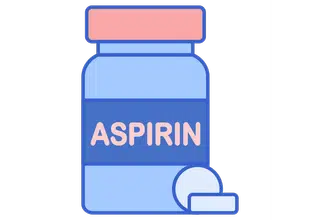Say Yes to Proper Disposal!

by Jenny Liu, Doctor of Pharmacy Candidate, University of Mississippi School of Pharmacy
Whether you practice in a community pharmacy or an ambulatory clinic, it is common to encounter patients who stockpile leftover antibiotics. There are many reasons why patients have leftover medications and don’t finish a prescribed regimen. But antibiotic hoarding and the improper disposal of unused antibiotics are serious problems with significant consequences.
Antimicrobials are widely used to treat infectious diseases and significantly reduce morbidity and mortality.1 However, the increasing prevalence of antibiotic resistance linked to the increasing use of antibiotics is a major problem that threatens their efficacy. The misuse and overuse of antibiotics, as well as the improper disposal of antibiotics, have been the primary cause of antibiotic resistance.
When antibiotics are prescribed, the shortest effective duration of therapy and smallest supply should be given. It is essential to tell patients, in the absence of a side effect or unexpected to response to the medication, to finish the prescribed regimen even if the symptoms improve or resolve. At the same time, if the patient is unable to complete the regimen, it is important to provide direction on how to dispose of unused medications by either returning them to the pharmacy (for disposal) or depositing them into a medication disposal box.
All health professionals (and particularly pharmacists!) must provide guidance to patients about the appropriate disposal of unused medications to prevent hoarding. It is not appropriate to simply throw antibiotics in the trash. More than half of antibiotic prescriptions are not taken as directed, and about one-third of patients do not finish the full course of therapy.2,5 When patients keep leftover antibiotics to use “next time,” instead of visiting a provider, it contributes to antibiotic resistance because their re-use is unlikely to target the right microbe or, worse, hasten the growth of bacteria that became resistant during the first course of treatment. The proper disposal of antibiotics is also critical. Recent reports documented unused and expired antibiotics in the garbage and water, contaminating the environment, and turning harmless microbes into deadly and resistant pathogens.1 Thus, environmental exposure leads to antimicrobial resistance, reducing antibiotic efficacy, increasing morbidity and mortality, and increasing the economic burden on our society.1,3
Recent studies provide insight into medication disposal practices in the United States. One study polled about 500 people, and most indicated they would dispose of unused and expired medications in the garbage (54%) or flush them down the toilet (35.4%).4 A smaller percentage admitted they would hoard the medication (7.2%), and a tiny minority indicated they would return unused medicines to the pharmacy (1.4%).4
So, what can we do as healthcare professionals to prevent hoarding and facilitate the proper disposal of unused antibiotics? We can start by increasing awareness of the problem. For example, you can download and use the materials in the Be Antibiotics Aware Partner Toolkit available from the Centers for Disease Control and Prevention and participate in the annual Antibiotic Awareness Week (in 2023 it will be November 18 —24). Every community pharmacy should have a medication disposal box available for patients to discard unused or expired medications.6 It is difficult for patients to properly dispose of drugs when there is a very limited number of locations where (or times when) proper medication disposal is available. Providing a convenient place for patients to drop medications off should be routinely and visibly available in every pharmacy. For pharmacists interested in establishing an Antibiotic Take Back Program in their community, a checklist is provided by the Society of Infectious Diseases Pharmacists (SIDP). You can increase awareness by displaying posters or distributing flyers (in English and Spanish) about proper medication disposal.
The issue of antibiotic resistance is a pressing concern that requires all of us to provide consistent messages to our health professional colleagues and patients. People must understand the risks associated with antibiotic misuse and its impact on individual and public health.7 By spreading awareness and promoting responsible antibiotic use and disposal, we can work towards reducing antibiotic resistance and preserving the effectiveness of these life-saving drugs.7
References- Anwar M, Iqbal Q, and Saleem F. Improper disposal of unused antibiotics: an often overlooked driver of antimicrobial resistance. Expert Review of Anti-infective Therapy 2020; 18(8): 697–699.
- Shealy KM, O’Day P, and Eagerton DH. The Needs and Opportunities for Medication Disposal Programs. Journal of Pharmacy Technology 2014; 30(5): 147–150.
- Ventola CL. The antibiotic resistance crisis: part 1: causes and threats. P & T 2015; 40(4): 277–283.
- Kinrys G, Gold AK, Worthington JJ, and Nierenberg AA. Medication disposal practices: Increasing patient and clinician education on safe methods. Journal of International Medical Research 2018; 46(3): 927–939.
- Bashaar M, Thawani V, Hassali MA, and SaleemF. Disposal practices of unused and expired pharmaceuticals among general public in Kabul. BMC Public Health 2017; 17(1): 45.
- Antibiotic disposal. SIDP. Available at: https://sidp.org/antibiotic-disposal
- Adebisi YA. Balancing the risks and benefits of antibiotic use in a globalized world: the ethics of antimicrobial resistance. Globalization and Health 2023; 19(1): Article 27.




 iForumRx.org is a web-based community of practice designed to inform ambulatory care pharmacy specialists, pharmacy residents, and student pharmacists about high-quality, practice-changing evidence.
iForumRx.org is a web-based community of practice designed to inform ambulatory care pharmacy specialists, pharmacy residents, and student pharmacists about high-quality, practice-changing evidence.